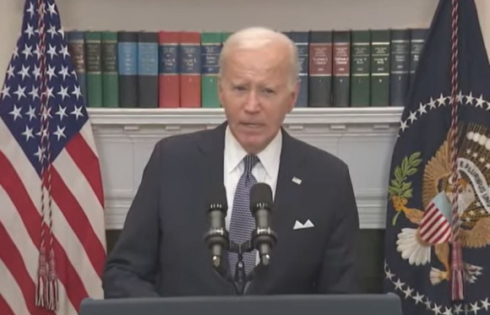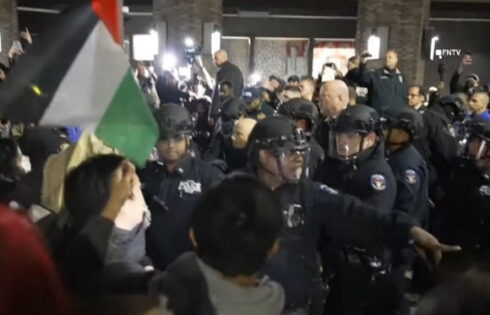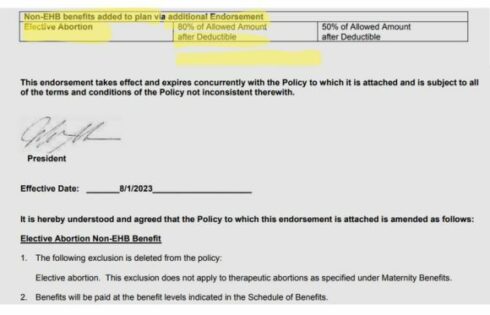
UPDATED
Student murdered on a different campus last year
Here’s a novel way to avoid bad headlines: Withhold public records from cash-poor student journalists.
That’s what Utah Valley University’s police department has been doing for the past two years. It started demanding $10 per “initial contact report” requested by UVU Review journalists in November 2017, and halved the fee to $5 sometime after December 2018.
The payments for public records took on a new dimension after a University of Utah student’s murder on campus made national headlines a year ago.
Lauren McCluskey allegedly told University of Utah police that her ex-boyfriend, a registered sex offender who was on parole, was harassing her. The Utah Department of Corrections, which knew his whereabouts, said after her murder that campus police didn’t pass along her complaints at the time.
The Utah State Records Committee put the kibosh on UVU’s practice last week, unanimously ordering police to provide the records for free as it did before November 2017, the Standard-Examiner reports.
The university says it will comply, though it’s not clear how it could appeal the ruling. The actual decision by the committee does not appear to be posted on its 2019 index of decisions, whose latest posted decisions are from September.
“It’s not right for a campus police department to try and price reporters out of doing their jobs.” We couldn't agree more! Congrats to UVU Review for winning their fight for public records. https://t.co/Q7suitVhsr
— Student Press Law Center (@SPLC) October 14, 2019
UVU Review Editor-in-Chief McKhelyn Jones and Eric Peterson, Utah Headlines Chapter of the Society of Professional Journalists, filed an appeal in April. They said the university denied an “unreasonable fees” appeal for the initial contact reports (also known as initial incident reports):
The UVU Review has reported on UVUPD’s police blotter in some form since 2011. Until fall of 2017, reporters could inspect and take photos of the initial contact reports made by university police officers without charge.
Before the changes in fall 2017, the initial contact reports contained several pieces of information (EXHIBIT A): who received the call, incident location, responding officer’s name, disposition, unit name, time reported, time dispatched, time completed, and a law narrative describing the responding officer’s initial findings.
In November 2017, however, the police department changed the format of the initial contact reports (EXHIBIT B) and began charging $10 for access to the information contained within them. To clarify, this fee was for access to information contained within initial contact reports and not for access to a full police report.
The format of the new initial contact reports changed to contain only the following information: nature, date/time reported, date/time occurred, general location, and disposition.
MORE: Women’s college suspends police officers for enforcing its rules
The $5 fee the newspaper and SPJ chapter challenged was actually the result of a compromise facilitated by the university’s PR and legal departments: The police department halved the price for the initial contact reports while keeping the police reports at $10.
When the UVU Review requested several reports from late 2018 and early 2019, the university again changed the rules, according to the appeal: The responsive documents had new redactions.
The university denied the newspaper’s fee waiver request, “arguing that the amount does not exceed the salary of the lowest paid employee.” The amount in dispute: $35.
UVU’s rationale “does not take into account the fact that initial contact reports are normally public and are usually free to inspect or that releasing the information primarily benefits the public,” the appeal argued:
With the tragic death of Lauren McClusk[e]y, reporting on campus crime is critical to inform the campus of safety risks; it helps inform students, staff, and faculty about the types of crime happening on their campus so that they might take safety precautions. It also holds the police accountable for their actions. UVUPD’s current practice of charging for initial contact reports makes it difficult for the general public to access this information and difficult for reporters to report on it.
Peterson, the SPJ official, said the committee’s decision shows “it’s not right for a campus police department to try and price reporters out of doing their jobs,” according to the Standard-Examiner. They both have the same goal – “to keep the campus public informed and safe.”
Read the report and appeal to the committee.
CORRECTION: The original post misidentified the university where Lauren McCluskey was murdered. It was the University of Utah. The post has been fixed.
MORE: UVU investigates aviation prof for views on Muslim immigration after 9/11
IMAGE: Peter Lang/Shutterstock
Like The College Fix on Facebook / Follow us on Twitter





Please join the conversation about our stories on Facebook, Twitter, Instagram, Reddit, MeWe, Rumble, Gab, Minds and Gettr.